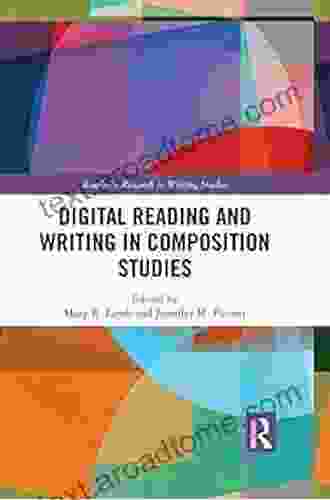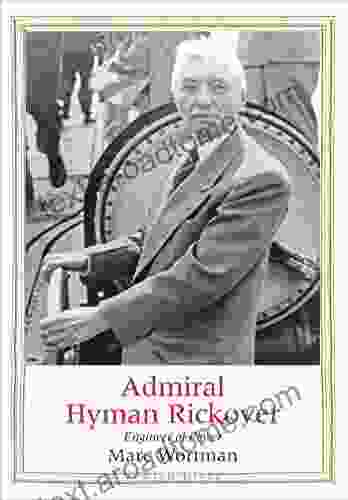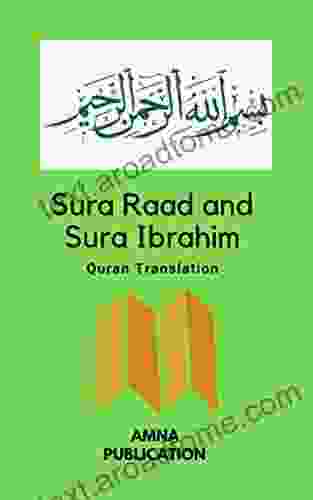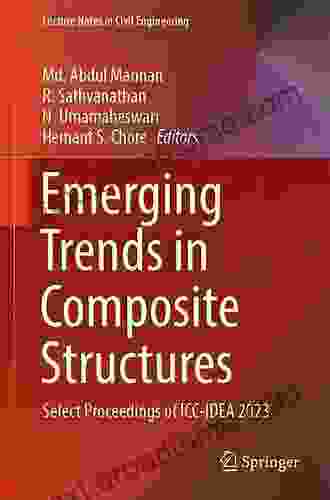Digital Reading and Writing in Composition Studies: Routledge Research in Composition and Rhetoric

Digital technologies are rapidly changing the way we read and write. In the past, reading and writing were primarily solitary activities, but now they are increasingly social and collaborative. We can now read and write on our own devices, and we can also share our work with others in real time. These changes are having a profound impact on the field of composition studies.
4.5 out of 5
| Language | : | English |
| File size | : | 4240 KB |
| Text-to-Speech | : | Enabled |
| Screen Reader | : | Supported |
| Enhanced typesetting | : | Enabled |
| Print length | : | 254 pages |
This volume explores the ways in which digital tools and platforms are changing the way we read, write, and communicate. The contributors to this volume come from a variety of disciplines, including composition studies, rhetoric, education, and technology. They offer a wide range of perspectives on the impact of digital technologies on writing instruction and research.
Digital Reading
Digital technologies have made it possible for us to read in new ways. We can now read text on our computers, tablets, and smartphones. We can also read text that is embedded in multimedia, such as videos and websites. These new ways of reading are changing the way we comprehend and respond to text.
One of the most significant changes in digital reading is the way we navigate text. In the past, we had to read text linearly, from beginning to end. Now, we can skim text, jump around, and search for specific information. This new way of navigating text is changing the way we think about reading and writing.
Digital technologies have also made it possible for us to read more text than ever before. We can now access vast amounts of text online, and we can store and organize text in digital libraries. This new access to text is changing the way we learn and research.
Digital Writing
Digital technologies have also made it possible for us to write in new ways. We can now write text on our computers, tablets, and smartphones. We can also write text that is embedded in multimedia, such as videos and websites. These new ways of writing are changing the way we compose and communicate.
One of the most significant changes in digital writing is the way we share our work. In the past, we had to share our work in print or by email. Now, we can share our work online, and we can collaborate with others on writing projects in real time. This new way of sharing our work is changing the way we think about writing and communication.
Digital technologies have also made it possible for us to write more text than ever before. We can now write text on our computers, tablets, and smartphones. We can also write text that is embedded in multimedia, such as videos and websites. This new access to text is changing the way we learn and research.
The Impact of Digital Technologies on Composition Studies
The changes in digital reading and writing are having a profound impact on the field of composition studies. These changes are challenging traditional notions of reading and writing, and they are forcing us to rethink the way we teach writing.
One of the most significant challenges facing composition studies is the need to prepare students for the new digital world. Students need to be able to read and write in a variety of digital formats, and they need to be able to use digital tools and platforms to collaborate with others. Composition studies programs need to adapt to these new demands by providing students with the skills and knowledge they need to succeed in the digital world.
Another challenge facing composition studies is the need to address the new ethical issues raised by digital reading and writing. For example, how do we protect our privacy when we share our work online? How do we ensure that we are using digital tools and platforms in a responsible way? Composition studies programs need to help students understand these new ethical issues and develop the critical thinking skills they need to make informed decisions about how they use digital technologies.
The changes in digital reading and writing are also creating new opportunities for composition studies. For example, digital technologies can be used to create new and innovative ways to teach writing. They can also be used to connect students with a wider range of audiences. Composition studies programs need to take advantage of these new opportunities to create more engaging and effective learning experiences for students.
Digital technologies are having a profound impact on the field of composition studies. These changes are challenging traditional notions of reading and writing, and they are forcing us to rethink the way we teach writing. Composition studies programs need to adapt to these new demands by providing students with the skills and knowledge they need to succeed in the digital world. They also need to address the new ethical issues raised by digital reading and writing and take advantage of the new opportunities that these technologies create.
By embracing the changes in digital reading and writing, composition studies can continue to play a vital role in preparing students for the future.
4.5 out of 5
| Language | : | English |
| File size | : | 4240 KB |
| Text-to-Speech | : | Enabled |
| Screen Reader | : | Supported |
| Enhanced typesetting | : | Enabled |
| Print length | : | 254 pages |
Do you want to contribute by writing guest posts on this blog?
Please contact us and send us a resume of previous articles that you have written.
 Book
Book Novel
Novel Page
Page Chapter
Chapter Text
Text Story
Story Genre
Genre Reader
Reader Library
Library Paperback
Paperback E-book
E-book Magazine
Magazine Newspaper
Newspaper Paragraph
Paragraph Sentence
Sentence Bookmark
Bookmark Shelf
Shelf Glossary
Glossary Bibliography
Bibliography Foreword
Foreword Preface
Preface Synopsis
Synopsis Annotation
Annotation Footnote
Footnote Manuscript
Manuscript Scroll
Scroll Codex
Codex Tome
Tome Bestseller
Bestseller Classics
Classics Library card
Library card Narrative
Narrative Biography
Biography Autobiography
Autobiography Memoir
Memoir Reference
Reference Encyclopedia
Encyclopedia Roberta E Rikli
Roberta E Rikli Nicholas J Talley
Nicholas J Talley Matt Feroze
Matt Feroze Mr World
Mr World Marisa Anne Cummings
Marisa Anne Cummings Mariana Caplan
Mariana Caplan Mauro Porcelli
Mauro Porcelli Matt Brian
Matt Brian Mark P J Vanderpump
Mark P J Vanderpump Max Alina
Max Alina Steve Madison
Steve Madison Robert P Weller
Robert P Weller Maurice Nicoll
Maurice Nicoll Marian Pitts
Marian Pitts The Ibanker
The Ibanker Paul T Bartone
Paul T Bartone Matthew Rudy
Matthew Rudy Tim Spector
Tim Spector Raymond Blanc
Raymond Blanc Vincent Tinto
Vincent Tinto
Light bulbAdvertise smarter! Our strategic ad space ensures maximum exposure. Reserve your spot today!

 Edward ReedIntelligent Optimization of Mold Design and Process Parameters in Injection...
Edward ReedIntelligent Optimization of Mold Design and Process Parameters in Injection...
 William PowellThe Ultimate Guide to Downsizing the Family Home: A Path to Liberation and...
William PowellThe Ultimate Guide to Downsizing the Family Home: A Path to Liberation and... DeShawn PowellFollow ·15k
DeShawn PowellFollow ·15k Xavier BellFollow ·15.1k
Xavier BellFollow ·15.1k Charles ReedFollow ·9.1k
Charles ReedFollow ·9.1k Kurt VonnegutFollow ·10.5k
Kurt VonnegutFollow ·10.5k Lucas ReedFollow ·18.3k
Lucas ReedFollow ·18.3k James GrayFollow ·8.1k
James GrayFollow ·8.1k Bernard PowellFollow ·3.7k
Bernard PowellFollow ·3.7k Ray BlairFollow ·3.3k
Ray BlairFollow ·3.3k
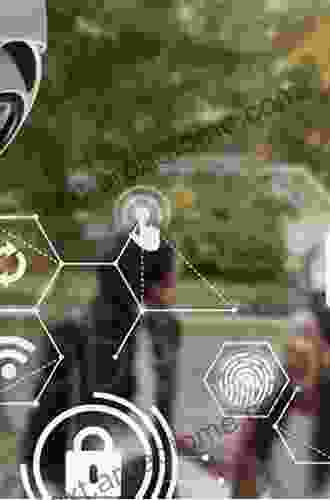
 Ralph Ellison
Ralph EllisonIntelligent Video Surveillance Systems: The Ultimate...
In a world...
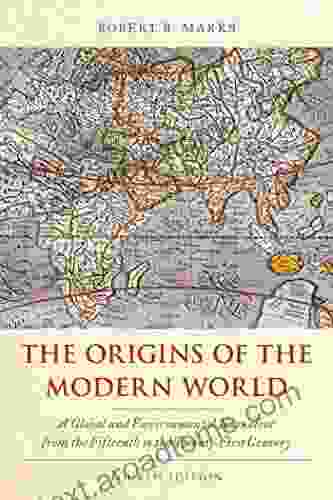
 Jeffrey Cox
Jeffrey CoxThe Origins of the Modern World: A Journey to the Roots...
Embark on an Extraordinary...
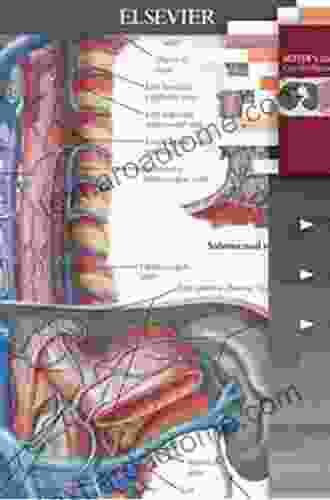
 Paulo Coelho
Paulo CoelhoUnlock the Power of Integrated Medical Imaging with...
In the rapidly evolving...
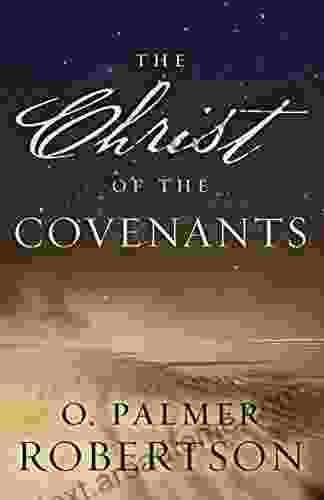
 Charles Reed
Charles ReedThe Christ of the Covenants: Unlocking the Mystery of...
Embark on a Profound...
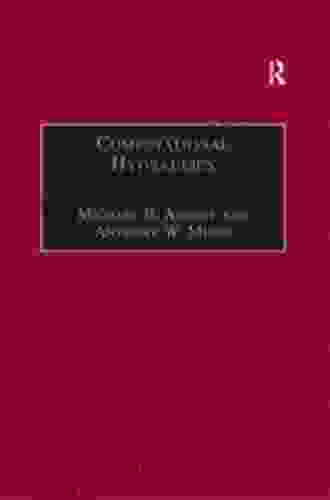
 Elton Hayes
Elton HayesComputational Hydraulics: A Comprehensive Guide for...
In the realm of fluid dynamics,...
4.5 out of 5
| Language | : | English |
| File size | : | 4240 KB |
| Text-to-Speech | : | Enabled |
| Screen Reader | : | Supported |
| Enhanced typesetting | : | Enabled |
| Print length | : | 254 pages |


